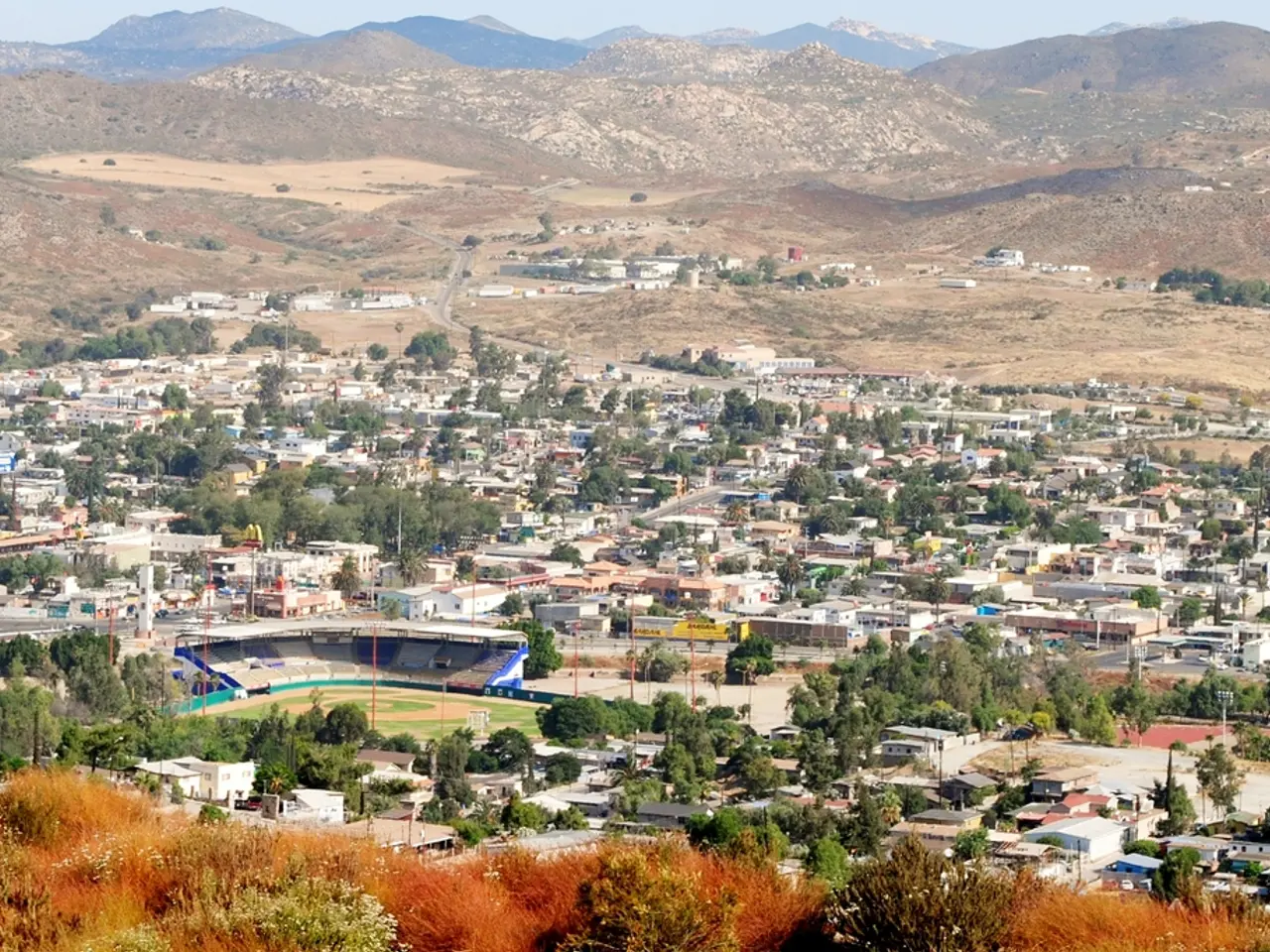Politics Harnessing Predictive Analysis for Boosted Public Contentment
In the modern political landscape, predictive analytics has emerged as a powerful tool, shaping the way campaigns are run and policies are made.
Predictive models are used to weight survey responses, simulate turnout scenarios, and extrapolate trends from sample data to the larger electorate. These models help political actors design more effective policies and prepare for potential negative consequences, enhancing public trust and encouraging more informed political engagement.
However, the use of predictive analytics is not without its challenges. When combined with AI-driven microtargeting strategies, it can fragment the electorate into segmented groups, weakening solidarity and creating disconnected publics. This fragmentation can undermine the social cohesion necessary for healthy democratic debate and collective action.
Moreover, the use of AI in politics often changes the nature of information dissemination, sometimes fostering misinformation, skepticism toward accurate information, and manipulation of voter attitudes. This threatens institutional trust and legitimacy.
Propensity scores, lookalike models, microsegmentation, and data sources like voter rolls, polling data, past election results, social media trends, mobile activity, geographic information, and behavioral surveys are all part of the predictive analytics toolkit used in politics.
To ensure responsible use of predictive analytics, campaigns should be transparent, obtain consent, validate models regularly, and use analytics to inform—not replace—human judgment. Real-time analytics dashboards help adjust messaging, event strategies, and media spend dynamically based on incoming campaign data.
Affordable SaaS tools and open-source models have made predictive analytics accessible to smaller campaigns, democratising its use in politics. Predictive analytics can optimise media buying by analysing which voter segments respond best to different platforms or messages.
Predictive analytics will play a significant role in the future of politics, revolutionising the way candidates are judged. Campaigns use predictive models to identify swing voters, allocate resources, personalise messaging, optimise media spend, and anticipate opposition moves. Predictive analytics can inform policy prioritisation by analysing what issues matter most to key segments.
Ethical concerns exist around predictive analytics in politics, including data privacy, voter manipulation, lack of transparency, profiling bias, and over-reliance on black-box AI systems. As predictive analytics continues to evolve, addressing these concerns will be crucial to maintaining the integrity and fairness of the democratic process.
In summary, predictive analytics can improve democratic decision-making and citizen satisfaction through better forecasting and transparency, but it also poses risks of democratic fragmentation, misinformation, and trust erosion if not carefully managed and inclusively deployed.
- Social media trends are valuable resources for predictive analytics in politics, providing insights into public opinions and behavior.
- The housing market can benefit from predictive analytics inreal-estate, helping families save for home ownership and manage debt.
- In the realm of personal finance, predictive analytics can guide individuals in budgeting, investing, and wealth management.
- Leadership in entrepreneurship must embrace predictive analytics to stay competitive and understand market trends.
- A career in consulting can involve working with clients to develop effective campaign strategy using predictive analytics.
- Politicians must navigate the challenges of using predictive analytics, ensuring data privacy and transparent practices in their strategies.
- Education and self-development resources, such as online courses, can teach the skills needed to work with data and cloud computing in predictive analytics.
- Mindfulness, productivity, and career development are areas where individuals can leverage resources and tools to improve their personal growth.
- Learning about goal-setting and lifelong-learning can help individuals effectively use predictive analytics for various aspects of their lives.
- Skills-training programs in predictive analytics can help diversify the workforce, fostering inclusion in the technology sector.
- The entertainment industry, including pop-culture, sci-fi, and fantasy, often reflects policy-and-legislation debates influenced by predictive analytics in politics.
- General news outlets cover the implications and impact of predictive analytics in politics, policy-making, and strategic campaigning.
- Job-search platforms can incorporate predictive analytics to help match individuals with careers that align with their interests and goals.
- Predictive analytics in politics contribute to policy prioritisation based on data and trends, ensuring that key issues are addressed by leaders.
- Open-source models and affordable SaaS tools make predictive analytics more accessible to smaller campaigns, enhancing democracy by empowering all voices.
- In the realm of campaign strategy, predictive analytics can optimize media buying, targeting specific voter segments and tailoring messaging effectively.
- Data-and-cloud-computing advancements drive the evolution of predictive analytics in various industries, including finance, real-estate, and politics.
- Predictive analytics can help candidates in elections by identifying swing voters, allocating resources, and personalizing messaging.
- To maintain the integrity of the democratic process, it is crucial to address ethical concerns such as data privacy, voter manipulation, and lack of transparency in predictive analytics.
- Collaboration between government, industry, and academia is essential to develop and promote responsible use of predictive analytics in politics.
- In a world where predictive analytics has become a significant tool in politics, fostering an understanding of its potential impact and ethical implications is essential for informed democratic engagement and vibrant public discourse.




